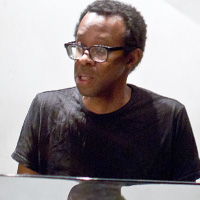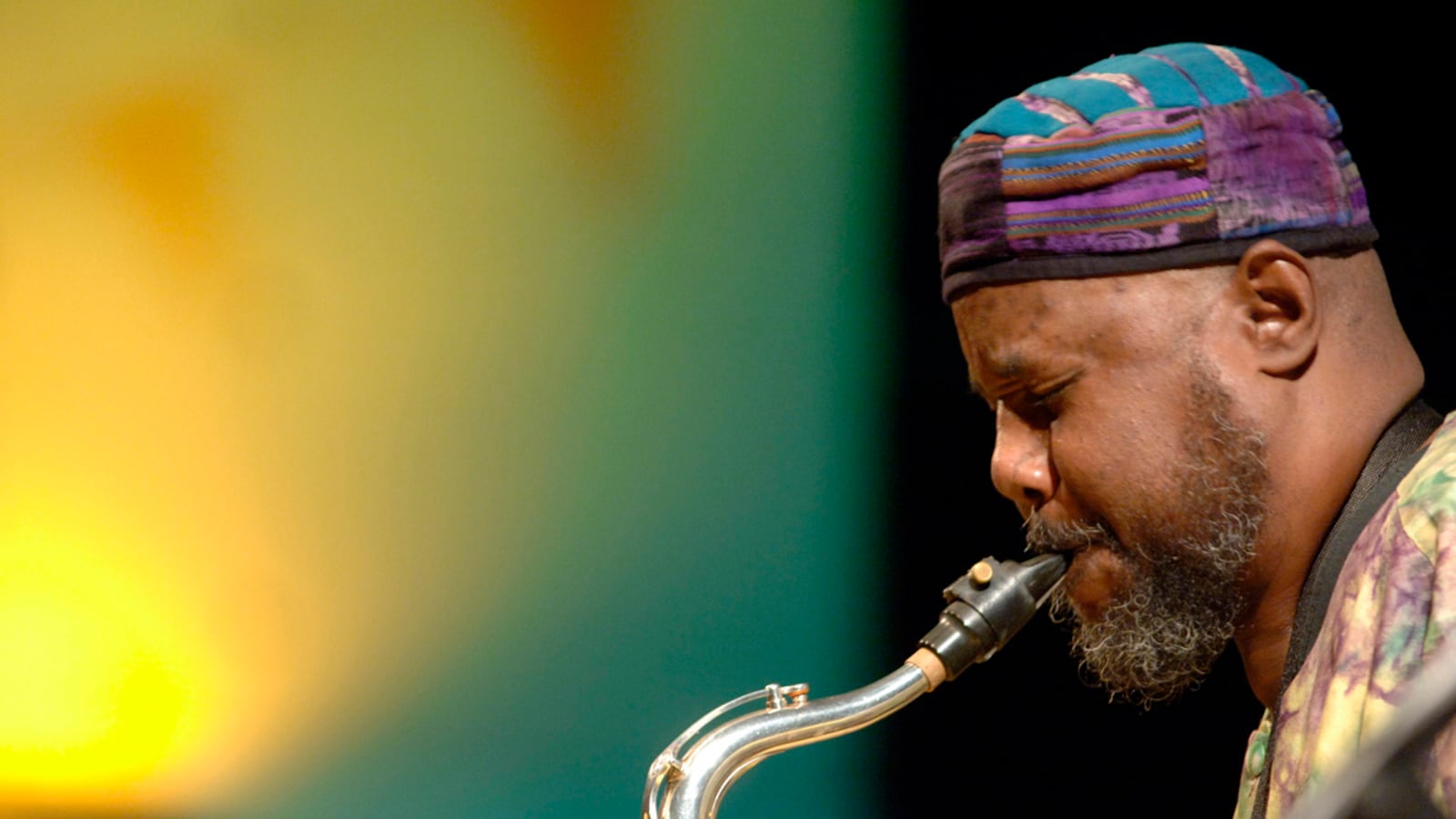In jazz, you often hear talk about how there are no more Miles Davises or John Coltranes.
Such talk misses the point, for people who formulate questions like this usually would not recognize the answer if it was in front of them. It would be presumptuous of me to declare anyone the next great player, for only time decides these questions. But this week we are mourning a jazz innovator—tenor saxophonist David S. Ware, who died from complications of a kidney transplant at age 62—and whose provocative body of work will continue to be listened to by those with ears to here for some time to come.
Ware situated himself in the jazz avant-garde tradition, meaning he was influenced by Coltrane and Albert Ayler—but perhaps paradoxically he was a protégé of the great tenor-sax bopmaster Sonny Rollins, who took the then-teenage Ware under his wings.
While he held a solid footing in jazz tradition and technique, Ware charted a course as an iconoclast from the beginning, generating a body of work that is striking in its originality, strength, tenderness, modernity, and inevitability.
Ware is best know for a quartet he assembled in 1989 that included myself on piano, William Parker on bass, and four different drummers during its 16-year run. His sound translated into many worlds, and Ware recorded with the quartet for Sony-Columbia jazz (Miles Davis’s label), blue-chip European and Japanese jazz labels, avant-garde label AUM Fidelity, and alternative-rock labels Homestead Records and Thirsty Ear.
Gary Giddins, perhaps the world’s most preeminent jazz critic, wrote in The Village Voice in 2001:
“Let’s be bold: The David S. Ware Quartet is the best small band in jazz today ... Every time I see Ware’s group or return to the records, it flushes the competition from memory.”

Strong words from a critic who has a reputation to maintain, especially keeping in mind that David was ignored by lots of people in the jazz world back then. He never even placed in the polls of jazz magazines at his height and only started to gain notice in them after he had a kidney transplant.
But at the height of the Ware quartet, we had generated a whole culture around the quartet and indie-rock youth felt it. We were signed to a slew of alternative-rock labels as a jazz act. The kids felt how the lyricism of the music and the energy related—something that jazz critics and even some players back then had trouble reconciling.
David has left behind a comprehensive body of work that touches on jazz past, present, and future—he understood the whole tenor and jazz tradition, but brought his own voice to it, and to our quartet. Some have compared our unit to the classic Coltrane quartet, but the members of our group all brought something to the table that only someone playing now could bring—resulting in a gestalt that is of its time and does not look back. When free jazz seemed like a spent force, he brought something new—and greatly beautiful—to it.
Ware stubbornly stuck to his artistic vision from the beginning to the end, through bad times—he drove a cab for years and turned down many viable commercial opportunities while he was formulating his quartet—good times, and health issues.
As I wrote elsewhere about Ware:
“David was a man of tremendous paradox, which added to his mystery: a peace-loving pacifist who had a love for and collection of firearms. He loved cars and speeding in cars. He had a tremendous sense of humor, but was so focused on who he was in the music—what his vision was—one of the most austere artists I've ever known. He never had any doubt about who he was and what he should be doing in the music, and he traveled a straight line with no confusion to his equation. I think of David as a great iconoclast in the tradition of other iconoclasts like Sun Ra, Thelonious Monk or anyone who pursues a personal vision to the end.”
So Ware leaves this earth a victor. In a world where conformity is prevalent and privilege from the beginning is usually what guarantees success, he managed to change the history of jazz through authenticity and substance.





